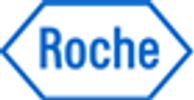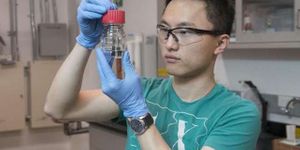Systemic sclerosis, also known as scleroderma, has the highest mortality of any autoimmune rheumatic disease. The rare, debilitating, chronic disorder affects between 75,000 to 100,000 people in the United States alone and as many as 2.5 million people around the world. Causing the body's immune system to attack its own tissue, scleroderma can lead to degenerative changes and scarring in the skin, joints and internal organs. It is four times more likely to affect women than men.

Scleroderma, which refers to the hardening of the skin, involves the malfunctioning of the vascular and immune systems. The immune system becomes overactive and overproduces collagen. Excess collagen collects in the skin and around the organs.
Currently, there is no FDA-approved treatment for systemic sclerosis, which often attacks people between 30 and 50 and can cause progressive degeneration and eventual death within about 11 years of diagnosis. While there are treatments for some aspects of the milder form of the disease, none have been able to stop or reverse the key symptom of skin thickening and hardening.
The U.S. Food and Drug Administration (FDA) has granted Breakthrough Therapy Designation status to Actemra® (tocilizumab) for systemic sclerosis to Genentech, a member of the Roche Group. According to a June 10 press release from the company, this designation "is intended to expedite the development and review of medicines with early signals of potential clinical benefit in serious diseases and to help ensure patients have access to them as soon as possible." The company, which is based in South San Francisco, Calfiornia, has started a Phase III study in systemic sclerosis (NCT02453256).
Jeffrey Siegel, M.D., Genentech medical director and an internist, explained the evolution of the drug and its potential effectiveness. As he explained, "In the 1980s, Dr. Tadamitsu Kishimoto at Osaka University in Japan discovered and cloned interleukin-6 and its receptor and delineated the signaling pathway used by IL-6 and a set of related cytokines. He demonstrated the involvement of IL-6 in the pathogenesis of rheumatoid arthritis and other diseases."
"Dr. Kishimoto prepared a monoclonal anti-IL-6 receptor antibody that was subsequently humanized and has been shown to be of great therapeutic value in a series of autoimmune diseases," Dr. Siegel added. Dr. Kishimoto's work led to the development of Actemra, a humanized anti IL-6 receptor monoclonal antibody, by Chugai Pharmaceuticals for rheumatoid arthritis in 1997. Because of a license agreement Hoffmann-La Roche co-developed Actemra for Castleman's disease and juvenile arthritis in 2003. Genentech, a biotechnology company, became a subsidiary of Roche in 2009. Its research and early development center operates as an independent center within Roche.
Actemra binds specifically to IL-6 receptors. IL-6 is a pro-inflammatory cytokine produced by a variety of cell types. Actemra is the first humanized interleukin-6 (IL-6) receptor antagonist approved for the treatment of adult patients with moderately to severely active rheumatoid arthritis who have used one or more disease-modifying antirheumatic drugs and not found relief. In addition, Actemra is also used as an IV formulation for patients with active polyarticular juvenile idiopathic arthritis or systemic juvenile idiopathic arthritis two years of age and older.
In 2010 researchers began looking at IL-6 as a possible therapeutic agent for scleroderma, according to Dr. Siegel. "Evidence suggests that IL-6 may play a role in scleroderma," he explained. "When IL-6 levels are increased, there is a higher risk of skin, lung and heart complications in the disease. The higher the IL-6 levels, the higher the risk. Our study showed that an IL-6 blockade lessens collagen formation and may thereby reduce complications from the disease."
Actemra, he explained, binds to the IL-6 receptors and prevents signaling through the IL-6 receptor, which drives inflammation and fibrosis. While other products in development target the fibrotic process or collagen network, IL-6 blocks the immunologic pathway.
Data on forty-eight weeks of study were presented in Rome at EULAR 2015 on Thursday, June 11. Although the primary endpoint of improvement in skin thickening at 24 weeks was not met, "a meaningful trend was observed," according to Genentech, including "continued improvement in skin thickening between weeks 24 and 48." As the company explained, "The extent and severity of skin thickness correlates to disease worsening, increased disability and decreased survival."
According to Dr. Siegel, "The trends were encouraging, and the milestones were close to being met, so the study was continued to 12 months. The most serious complications were being addressed."
The program was designed to explore the benefits of Actemra used by itself. The Phase III clinical trial is expected to last several years and be conducted at many centers. If the trial is successful, the company will file for approval with the FDA.
Dr. Siegel, who has spent 20 years in drug development, has seen many drugs fail in systemic sclerosis. He has high hopes for Actemra.
"We are devoted to addressing unmet medical needs," Dr. Siegel concluded. "We look forward to the Phase III clinical trial, and we hope to bring a much-needed drug to the people with systemic sclerosis."











